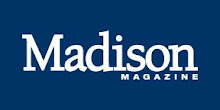Back in 2003 when Patrick Strickler, then-UW communications director on Bascom Hill, contacted Madison Magazine about Chancellor John Wiley’s interest in penning an article on the state of higher education, editor Brian Howell and I were excited. The legislature was gridlocking, tuition costs were rising and faculty pay was falling. And yet the university held so much promise in so many multifaceted ways. We believed our readers would want to know how the head of the University of Wisconsin–Madison felt about it all.
Wiley’s article ran in the November issue, and for us it was a prelude to the magazine’s new Madison Business section we debuted the following March. The new business content would feature in-depth stories about UW spinoff companies that might someday cure killer diseases, as well as up-and-coming professors-cum-CEOs drawing venture capital to Madison so they could transfer their ideas into the marketplace. Our vision was to tell the story of the Wisconsin Idea in the 21st century, to provide a forum for the sifting and winnowing dialogue the university was famous for, and to connect those conversations to the larger economic fabric of the community and the quality of life we cherish here. It was a bold vision, but Brian only operated in big-ideas mode, and I was more than ready to share the responsibility for making it happen.
When we published the 2003 article, “Higher Education at the Crossroads,” we hoped the Chancellor’s “wake-up call” on funding for public education, and his opinions about UW’s enormous influence on our local and state’s “ailing economy” might raise a few eyebrows, even stimulate some much-needed debate on the subject. We were wrong. Even Wiley, in the first draft of the follow-up column he published in the magazine this month, called the original effort “largely unsuccessful.” He did, though, defend his premise that higher education was at a crossroads, which is why he said he felt compelled to try again five years later. This time, he told readers, the situation has evolved “From Crossroads to Crisis.” This time, his voice has been heard.
Brian, who died of lung cancer in November 2003, would have loved the recent buzz after last Thursday’s posting of the article online, which included wire stories on CNNMoney.com and Forbes.com. Ironically, the cogent, well-written and remarkably candid article earned statewide and national attention and praise in part because the business lobby group he chastises, Wisconsin Manufacturers and Commerce, quickly issued a press release to “Wisconsin editors” challenging Wiley’s assertions. It wasn’t exactly the kind of damage control I was expecting, but I guess that’s why I’m in journalism and not politics.
I have to thank our sister media enterprise WISC-TV, which reach further out into the southern Wisconsin region than Madison Magazine does, for breaking the story for us the evening before the magazine came out. Political reporter Jessica Arp conducted a compelling interview with Chancellor Wiley (search for "Wiley" to see interview highlights) and Marc Lovicott’s strong reporting led to some revealing information about the storm that’s brewing inside the closely guarded doors of the WMC. The story headlined another sister entity Channel3000.com, and it's huge viewership helped deliver record traffic to the story on our website. Both Madison newspapers printed stories and editorials, which contributed richly to the dialogue, and Journal Sentinel reporters sniffed out some conflicting statements made by the WMC.
For my part, it was extremely rewarding to edit both of the articles Wiley published in the magazine. The Chancellor is a strong writer who is always open to suggestions for ways to tighten his writing, sharpen the focus and clarify his points. There’s nothing I love more about my job than to work with a writer to make every word count. “Our politics has become a poisonous swill” is my favorite passage in the piece—once again proving the pen to be mightier than the sword. Of course, Professor Wiley’s academic side came out when I removed his footnotes in favor of the journalistic use of attributions, but thanks to the Internet we were able to hyperlink his references in the online version of the story. I think he was relieved.
Whether or not you agree with Wiley—and I made it clear in a testy phone call from the WMC that a column of opinion was not an editorial endorsement—the immediate and for the most part praiseworthy reaction to the article (I was told he received a standing ovation at this week’s downtown Rotary meeting) is an important signal to citizens, politicians and business leaders that we are indeed in a crisis and solutions need to come next.
Subscribe to:
Post Comments (Atom)



1 comment:
You say your opinion pieces are not endorsements but Madison Magazine clearly does endorse Wiley's view as evidenced by your intro to his article and your foreword.
Post a Comment